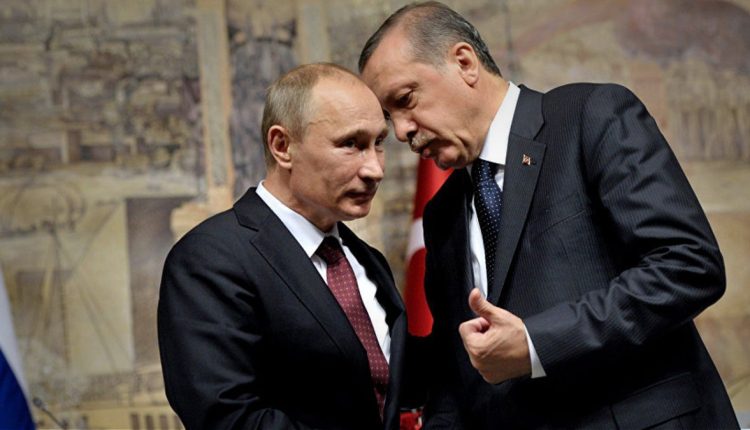Erdoğan to Putin: Turkey Supports SDF Integration into Syrian State
By Kardo Roj
DAMASCUS, Syria (North Press) – Turkish President Recep Tayyip Erdoğan told his Russian counterpart Vladimir Putin on Friday that Turkey supports the integration of the Syrian Democratic Forces (SDF) into Syria’s central government, according to a statement from the Turkish presidency.
The phone call between the two leaders comes amid shifting political dynamics following the agreement between Syria’s transitional government and the SDF earlier this month. The deal, signed by Syrian transitional President Ahmad al-Sharaa and SDF Commander Mazloum Abdi, outlined the integration of the SDF’s military and civil institutions into the state framework, a move welcomed by Arab and international actors.
According to the Turkish presidential statement, Erdoğan emphasized Ankara’s commitment to cooperating with Russia on Syria and ensuring lasting peace and stability based on the country’s territorial integrity. He asserted that “Syria’s resources should be left to the Syrian government” and reiterated Turkey’s stance against any fragmentation of Syria along ethnic or sectarian lines.
Furthermore, Erdoğan underscored the importance of eliminating what he called “terrorist organizations” in Syria, a reference that has long been used by Ankara to describe Kurdish-led groups, including the SDF. However, his remarks suggesting support for the SDF’s integration into the Syrian state indicate a possible shift in Turkey’s position, which has historically viewed the group as a security threat due to its ties to the Kurdistan Workers’ Party (PKK).
The Syrian transitional government’s deal with the SDF represents a significant political realignment. Since its formation following the collapse of Bashar al-Assad’s regime in late 2024, the transitional government has sought to bring various military and political factions under a unified national framework.
The SDF, backed by the US-led coalition during the war against ISIS, has played a key role in securing northeast Syria. Its governance model under the Autonomous Administration of North and East Syria (AANES) has been a source of tension with Damascus and Ankara. However, the recent agreement marks the first formal step toward integrating SDF structures into the Syrian state.
Turkey’s cautious endorsement of this integration raises questions about its broader strategy in Syria. While Ankara has previously opposed any form of Kurdish autonomy in the region, its latest statements suggest a pragmatic approach aimed at securing its interests through engagement rather than confrontation.
Moscow has long advocated for a political resolution in Syria that preserves state unity while incorporating local governance structures. Russia’s continued coordination with both Turkey and the Syrian government places it in a key mediating role as Syria’s transition unfolds.
With Turkey, Russia, and Syria’s transitional government now seemingly aligned on the importance of integrating the SDF into state institutions, the coming months will reveal whether this agreement leads to genuine national reconciliation or remains a fragile political arrangement.
For now, the SDF’s role in Syria’s future remains a pivotal issue, with its integration likely to redefine power balances in the country and reshape regional alliances.

